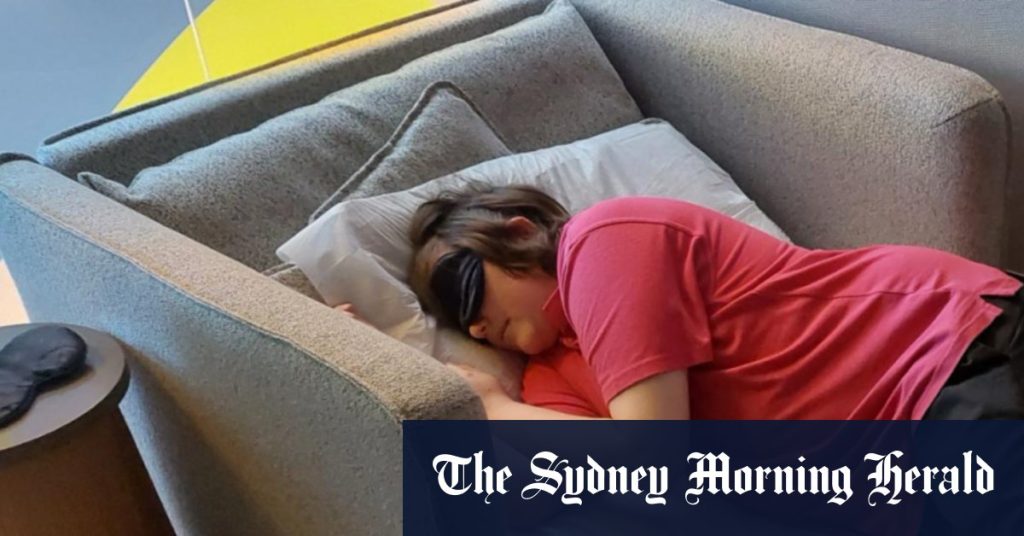James’s experience working in Shanghai exposed him to a vastly different cultural perspective on workplace rest. Observing the common practice of napping during work hours, with office furniture designed to accommodate this need, sparked a realization about the potential benefits of integrating rest into the workday. This contrasted sharply with the prevailing “taboo” surrounding sleep at work in Australian workplaces, where productivity was often prioritized at the expense of employee well-being. This cultural contrast highlighted the potential for a paradigm shift in how Australian businesses approach employee rest and its impact on overall productivity. The observation of the Chinese emphasis on sleep as integral to both productivity and good health served as a catalyst for rethinking workplace norms in Australia.
Inspired by this experience, James introduced a “rest and relax” room at his company, HIF, a dedicated space designed to facilitate employee rest during work hours. The room’s features, including darkness, coolness, quiet, and a sleep machine, are specifically designed to promote relaxation and restorative sleep. This initiative represents a proactive step towards normalizing rest in the workplace, challenging traditional assumptions about productivity and rest being mutually exclusive. The increasing demand for the “rest and relax” room suggests a growing recognition among employees of the value of integrating short periods of rest into their workday. This shift in attitude indicates a willingness to embrace a more holistic approach to well-being in the workplace.
Ryan Miller, an employee at HIF, shared his positive experience with the “rest and relax” room, emphasizing its practical benefits. He described how short naps in the designated space helped him combat exhaustion and improve his work performance. His testimony provides concrete evidence of how incorporating rest into the workday can directly enhance productivity, challenging the traditional notion that constant activity is the sole path to efficiency. Miller’s experience highlights the potential for short, targeted rest periods to revitalize employees and improve their focus and output.
Sleep expert Amanda Slinger underscored the critical importance of addressing sleep deprivation in the workplace. She pointed out the detrimental effects of poor sleep on employee performance, including increased errors, impaired decision-making, and heightened susceptibility to stress-related illnesses. These consequences have a direct impact on an organization’s bottom line, emphasizing the economic rationale for prioritizing employee sleep. Slinger’s expertise lends credence to the growing movement towards recognizing sleep as a crucial factor in workplace productivity and overall organizational health. This perspective reinforces the need for companies to actively promote and facilitate healthy sleep habits among their employees.
HIF’s approach to employee well-being extends beyond simply providing a dedicated rest space. The company implemented company-wide training focused on prioritizing sleep, demonstrating a commitment to fostering a culture that values employee health and well-being. This holistic approach recognizes that lasting change requires more than just physical resources; it necessitates a shift in mindset and a conscious effort to embed healthy sleep habits into the company culture. By providing training and resources, HIF is equipping its employees with the knowledge and tools to improve their sleep hygiene and experience the associated benefits.
This initiative reflects a broader trend in workplace culture towards recognizing the interconnectedness of employee well-being and organizational success. The traditional emphasis on long working hours and constant activity is gradually giving way to a more balanced approach that acknowledges the importance of rest and recovery. This shift represents a move towards a more sustainable and humane work environment, one that prioritizes employee health and well-being as essential components of a thriving organization. By challenging outdated assumptions about productivity and embracing innovative solutions like the “rest and relax” room, companies like HIF are paving the way for a future where work and well-being are not seen as opposing forces, but rather as complementary elements of a successful and fulfilling career. This evolving perspective promises to create a more productive, engaged, and ultimately healthier workforce.










